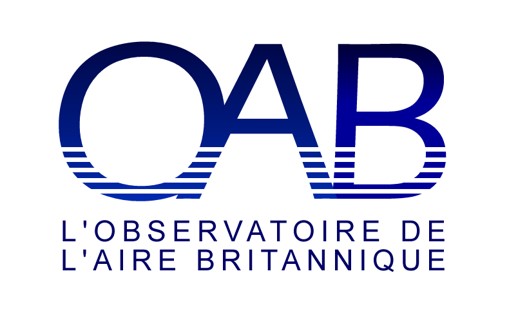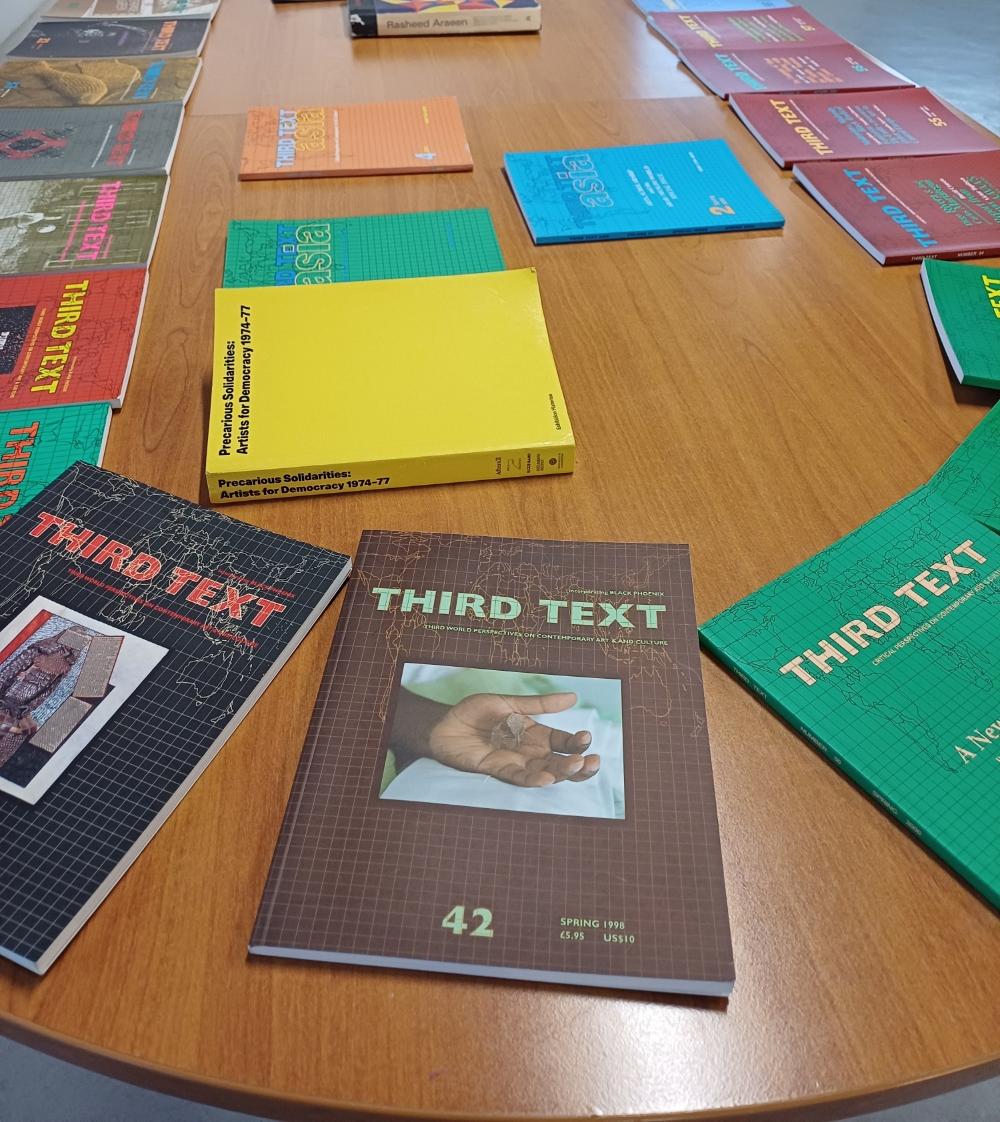Version française / Séminaires
- Recherche - LLS,
Séminaire OAB Wilson Tarbox, Shana-Elisabeth Mongwanga-Eloko
Publié le 14 janvier 2025
–
Mis à jour le 13 mars 2025

Interventions de Wilson Tarbox, "Radical genealogies of Third Text, 1964-1987", et de Shana-Elisabeth Mongwanga-Eloko, "Private Members Club culture and their impact in contemporary British politics. Brexit: a case-study".
Date(s)
le 29 avril 2025
29 avril, 10h-12h
Lieu(x)
Bâtiment Ida Maier (V)
Salle V210
Séance du séminaire OAB
Wilson Tarbox, doctorant contractuel CREA / ArTec
"Radical genealogies of Third Text, 1964-1987"

Third Text: Third World Perspectives on Art and Culture is a critical art journal that is both of its time and defiant of its time. On the one hand, it represents an agent of the global turn in late 20th- and early 21st-century revisions of the art historical canon and institutional policy. In many ways, it was a pioneer of new discourses on global and globalized art histories. On the other hand, its distinctly left-wing and progressive editorial orientation marks it as an outlier in the post-Cold War landscape of late 20th- and early 21st-century cultural politics.
What explains the particular combination of Third World radicalism and vanguard cultural theorizing that characterizes this unique art journal? This paper seeks to elucidate the editorial line of Third Text by exploring its genealogy, examining both the extremely local circumstances—such as the personal trajectory of its founding editor, Rasheed Araeen, and the complex web of national and municipal politics that enabled Third Text to secure Arts Council funding—and the broader global shifts in political and cultural relations in the postwar geopolitical landscape.
Shana-Elisabeth Mongwanga-Eloko, doctorante CREA
"Private Members Club culture and their impact in contemporary British politics. Brexit: a case-study"
The tradition of Private members club dates back to England in 1693 with Whites, the first Private Members club, still active to this day and reserved to Men only. But Female only Clubs were also established and popular and helped shape agendas and reforms on social issues. Such as the Reform Club where the character in Jules Verne's book Around the World in 80 days, starts his journey. But what exactly are these Private Members Clubs? Mere socialising hideout or hidden corridors or powers? From their glory days in the Victorian era to their relative decline in the 1990s there is a resurgence of these Clubs in today's world. There are about thirty well-established Private Members Clubs in London with various aims and membership rates in the tradition of modernised private gentlemen's clubs of yesteryears. During the Brexit years we have seen a prominence of stories emanating from these Private Clubs. Tell me your club membership and I will tell you what your political affiliations are. Boris Johnson's Premiership ended with a story that happened at a Private Members' Club: The Carlton club Where Conservative Deputy Chief Whip, Chris Pincher, allegedly sexually assaulted another member. What role do these clubs play in today’s culture and what is their impact on British politics, if any? In this paper I will focus on the part the London clubs may have had in hosting and orienting conversations in the build-up to the Brexit referendum, from the Conservatives’ electoral victory in 2011 to the date of the referendum in 2016.
Wilson Tarbox, doctorant contractuel CREA / ArTec
"Radical genealogies of Third Text, 1964-1987"

Third Text: Third World Perspectives on Art and Culture is a critical art journal that is both of its time and defiant of its time. On the one hand, it represents an agent of the global turn in late 20th- and early 21st-century revisions of the art historical canon and institutional policy. In many ways, it was a pioneer of new discourses on global and globalized art histories. On the other hand, its distinctly left-wing and progressive editorial orientation marks it as an outlier in the post-Cold War landscape of late 20th- and early 21st-century cultural politics.
What explains the particular combination of Third World radicalism and vanguard cultural theorizing that characterizes this unique art journal? This paper seeks to elucidate the editorial line of Third Text by exploring its genealogy, examining both the extremely local circumstances—such as the personal trajectory of its founding editor, Rasheed Araeen, and the complex web of national and municipal politics that enabled Third Text to secure Arts Council funding—and the broader global shifts in political and cultural relations in the postwar geopolitical landscape.
Shana-Elisabeth Mongwanga-Eloko, doctorante CREA
"Private Members Club culture and their impact in contemporary British politics. Brexit: a case-study"
The tradition of Private members club dates back to England in 1693 with Whites, the first Private Members club, still active to this day and reserved to Men only. But Female only Clubs were also established and popular and helped shape agendas and reforms on social issues. Such as the Reform Club where the character in Jules Verne's book Around the World in 80 days, starts his journey. But what exactly are these Private Members Clubs? Mere socialising hideout or hidden corridors or powers? From their glory days in the Victorian era to their relative decline in the 1990s there is a resurgence of these Clubs in today's world. There are about thirty well-established Private Members Clubs in London with various aims and membership rates in the tradition of modernised private gentlemen's clubs of yesteryears. During the Brexit years we have seen a prominence of stories emanating from these Private Clubs. Tell me your club membership and I will tell you what your political affiliations are. Boris Johnson's Premiership ended with a story that happened at a Private Members' Club: The Carlton club Where Conservative Deputy Chief Whip, Chris Pincher, allegedly sexually assaulted another member. What role do these clubs play in today’s culture and what is their impact on British politics, if any? In this paper I will focus on the part the London clubs may have had in hosting and orienting conversations in the build-up to the Brexit referendum, from the Conservatives’ electoral victory in 2011 to the date of the referendum in 2016.
Mis à jour le 13 mars 2025












